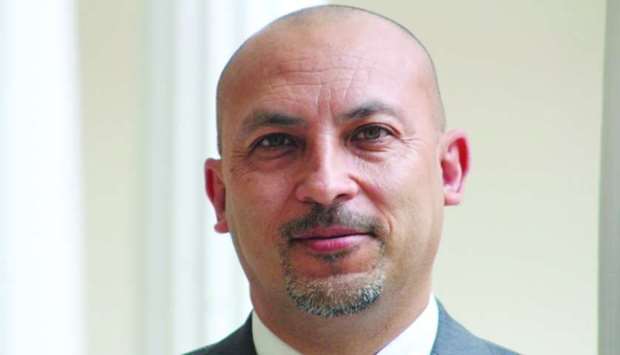Qatar and Costa Rica are expected to maintain “prosperous” commercial, financial, and cultural exchange in the future despite a “difficult year” for trade between the two nations as a result of the novel coronavirus (Covid-19) pandemic, Costa Rica ambassador Mariano Segura Avila has said.
“The representation of Qatar in Costa Rica and our embassy have made a commitment to strengthen our diplomatic ties and foster a more favourable business environment for both nations, which have common objectives in order to fulfill the economic and social agenda by 2030,” Avila told Gulf Times.
According to Avila, one of the main areas of work of the Embassy of Costa Rica in Qatar is the cultural and commercial promotion of the country. In the cultural area, Costa Rica offers a wide range of opportunities for cultural development, in the musical, theatrical and cinematographic film fields; without neglecting the folkloric elements of our culture.
In the commercial area, despite not directly having a promotion office in Qatar, Avila said the embassy is working with the Foreign Trade Promoter (Procomer) in an ambitious plan to promote services and manufactured goods in Qatar through the respective chambers of commerce.
“From that perspective, our role as an embassy is to make a link between Costa Rican producers and their counterparts in Qatar,” said Avila.
In the field of services, Avila said the economy of Costa Rica has been directly affected by the drastic reduction in tourism – the generator of the largest inflow of foreign currency into the country in recent years and an important source of employment, mainly in the rural areas of the country.
Avila said Costa Rica has a solid institutional base in the health area, which has allowed it to face the Covid-19 crisis with a “reduced number of cases of contagion” and with the “lowest mortality rate” in Latin America.
“The crisis has had significant economic effects, following the closure of the borders and the government's call for the population to remain in their homes to reduce the spread of Covid-19. Given this health emergency, the growth of the economy in 2020 is expected to reach figures close to -3%,” Avila pointed out.
Costa Rica has a small and open economy to the financial market, both in terms of trade in goods and services and in the flow of financial investments, Avila said.
He said Costa Rica is an economy with “great economic stability,” with potential growth levels close to 4%, inflation less than 3%, and with a solid balance of payments based on a significant diversification of its exports of manufactured products, agricultural goods, and income from the tourism.
“Since decades ago, economic stability, the capacity of human resources, and its political stability have been distinctive elements in the region, which have facilitated the sustained entry of foreign direct investment from all regions of the world. Costa Rica is a nation with an exemplary democracy and without an army since 1949,” Avila said.
According to Avila, one of the main areas of work of the Embassy of Costa Rica in Qatar is the cultural and commercial promotion of the country. In the cultural area, Costa Rica offers a wide range of opportunities for cultural development, in the musical, theatrical and cinematographic film fields; without neglecting the folkloric elements of our culture.
In the commercial area, despite not directly having a promotion office in Qatar, Avila said the embassy is working with the Foreign Trade Promoter (Procomer) in an ambitious plan to promote services and manufactured goods in Qatar through the respective chambers of commerce.
“From that perspective, our role as an embassy is to make a link between Costa Rican producers and their counterparts in Qatar,” said Avila.
In the field of services, Avila said the economy of Costa Rica has been directly affected by the drastic reduction in tourism – the generator of the largest inflow of foreign currency into the country in recent years and an important source of employment, mainly in the rural areas of the country.
Avila said Costa Rica has a solid institutional base in the health area, which has allowed it to face the Covid-19 crisis with a “reduced number of cases of contagion” and with the “lowest mortality rate” in Latin America.
“The crisis has had significant economic effects, following the closure of the borders and the government's call for the population to remain in their homes to reduce the spread of Covid-19. Given this health emergency, the growth of the economy in 2020 is expected to reach figures close to -3%,” Avila pointed out.
Costa Rica has a small and open economy to the financial market, both in terms of trade in goods and services and in the flow of financial investments, Avila said.
He said Costa Rica is an economy with “great economic stability,” with potential growth levels close to 4%, inflation less than 3%, and with a solid balance of payments based on a significant diversification of its exports of manufactured products, agricultural goods, and income from the tourism.
“Since decades ago, economic stability, the capacity of human resources, and its political stability have been distinctive elements in the region, which have facilitated the sustained entry of foreign direct investment from all regions of the world. Costa Rica is a nation with an exemplary democracy and without an army since 1949,” Avila said.


